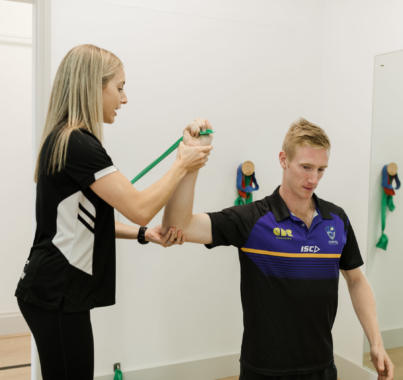Headaches can be challenging to manage due to their various causes and the different ways they manifest in individuals. Triggers can be physical such as an irritated joint or a tight muscle, psychological such as stress or anxiety, or related to lifestyle factors like dehydration, food intolerances, or lack of sleep. This variety is what often complicates effective management.
Identifying common factors associated with headaches can help you recognise their specific causes, allowing for more targeted management strategies.

Understanding the sources of headaches
Musculoskeletal headaches
Headaches can originate from musculoskeletal structures, such as joints or nerves in the spine. The upper three cervical joints (C1-3) refer to the head, so irritation at these levels can lead to headaches, nausea, or dizziness.
Muscle tension is another common trigger for headaches. Certain muscles in the neck, jaw, and shoulders connect to the base of the skull, and if these muscles become tense or overactive, they can produce pain that manifests as a headache.
Additionally, poor posture or physical overexertion can lead to muscle tension, contributing to this type of headache.
Preventing Tension-Related Headaches
Preventing these types of headaches often involves improving posture, especially in work-related settings where many people spend most of their day. An ergonomic assessment of your workplace can help identify poor habits that may be contributing to muscle tension and fatigue.
New mothers often experience neck and head pain from hours spent nursing or rocking their babies in awkward, repetitive positions. Various nursing pillows and chairs can provide support, along with changing feeding positions, incorporating muscle stretches and releases, and engaging in strength exercises to help manage discomfort.
For those who are active, reviewing your exercise routine may reveal movement patterns that place extra strain on the muscles at the base of your head. A physiotherapist can assist in identifying these issues and targeting specific muscles and movements to reduce the load on your head.

Migraines
Migraines are primarily a genetic neurological condition that can cause moderate to severe pain, often accompanied by nausea and sensitivity to light and sound. Typically, an aura precedes a migraine, which may result in visual disturbances like spots or stars, ringing in the ears, or escalating head pain. While migraines are usually one-sided, they can affect both sides of the head.
Because migraines stem from changes in blood flow and nerve sensitivity within the central nervous system, medication is often necessary for management. Keeping a headache diary can also help identify potential migraine triggers, such as hormonal fluctuations, specific foods, or exposure to light and sound.
Physiotherapy can assist in managing the musculoskeletal tension and pain associated with migraines, complimenting medication as part of treatment.

Lifestyle-related headaches
Dehydration can influence blood pressure, leading to headaches that are typically experienced as a diffuse pain across the whole head. To differentiate a blood pressure-related headache, it’s important to assess factors such as fluid intake, alcohol and caffeine consumption, medications, and exercise habits.
Mental health significantly contributes to the incidence of headaches. Increased cortisol levels during stressful periods can trigger headaches, while stress can also reduce pain tolerance and lead to muscle tension that radiates to the head. Similarly, lack of sleep decreases pain tolerance, often resulting in more intense headaches. Quality sleep is essential for the brain to rest and function properly; disruptions can lead to mood and hormonal imbalances that contribute to headaches.
In addition to stress management techniques, physiotherapy can help relieve tension in the neck and jaw, which may reduce the severity of stress-related headaches.
Certain medications and food intolerances can lead to headaches as a side effect. Your doctor may evaluate your medications to help manage these side effects, while a dietitian might suggest keeping a food and headache diary to pinpoint potential triggers. This approach can help you find suitable alternatives while still meeting your nutrition needs.

The most effective management of headaches involves a multidisciplinary team of healthcare professionals. Doctors play a crucial role in referring patients for scans, specialists, and prescribing medications to alleviate headache symptoms. Physiotherapists can address muscle tension related to headaches, assess posture and movement, and provide corrective exercises to reduce recurrence. Psychologists contribute by offering stress management strategies, which can help mitigate headache triggers. Meanwhile, dietitians can identify food-related triggers and recommend suitable alternatives to improve overall well-being.
All professionals involved have the expertise to identify headache triggers, manage symptoms within their area of expertise, and refer you to the appropriate healthcare provider for issues they cannot address. If you are experiencing recurrent headaches, please don’t hesitate to seek help.









